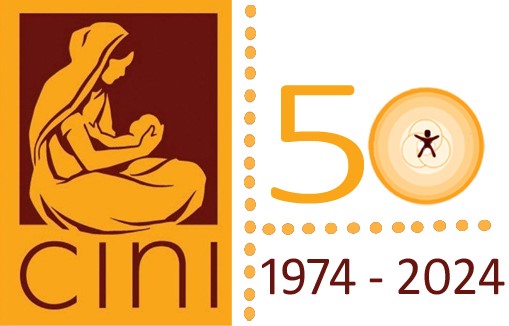CINI was founded in 1974 by paediatrician Dr Samir Chaudhuri who wanted to reduce rates of infant mortality in Kolkata by making sure sick and malnourished children in the poorest villages had access to the nutrition they needed.
Malnutrition and under nutrition, caused by a lack of nutrients either as a result of a poor diet or problems absorbing nutrients from food, has its origins in a complex web of social, economic and cultural causes.
CINI in the early days
Dr Chaudhuri understood that CINI’s medical interventions alone were not enough to address the root causes of malnutrition. Determined to tackle both the causes and its consequences, CINI committed itself to improving the health of mothers as well as children, and reducing poverty, illiteracy and the cultural conditions that led to women and girls being treated differently to men and boys.
CINI teams specialising in child health were soon working with women as a way of improving the health of their child and the whole community. The teams promoted wide ranging medical and health interventions, including vaccination, exclusive breastfeeding and early treatment of diseases. Workshops were held with mothers to make them aware of the importance of proper nutrition and adequate neonatal care, and community self-help groups were set up.
Around this time CINI also started to monitor infant growth and gather data, bringing together its teams to build and share knowledge with others about the interventions that had worked.
CINI was soon being asked to share its learnings and built the Chetana Training Centre. Here CINI teams trained people working in the health and development sector on ways to support marginalised groups in urban areas and villages around West Bengal.
In the 1980s CINI continued to work in the field and trained others to do so. We learned from our experiences and started to understand how interventions had sustainable, long term impacts.
The life cycle approach
The most sensitive periods of human life: pregnancy, the first two years of a child’s life and adolescence soon became our focus. Interventions at these critical times of life have long term impacts, so we adopted a new strategy called the ‘life cycle approach’.
Around this time Kolkata hit the headlines with what was being coined by the press “street children”. To address the urgent need of children in Kolkata, CINI opened reception centres and refuges for those children that were lost, or who had run away from dire family situations or traffickers. We were soon supporting children in the slums and red light districts as the scale of the situation, and the issues impacting children, became apparent.
CINI Asha was born. CINI Asha saw the implementation of child safety programs in urban areas where the risks for children were highest, and as an organisation we started to embed education initiatives into all of our programmes.
We recognised that education was – as it still is – probably the most powerful tool to protect children from exploitation and abuse.
The early 1990s saw CINI embed learning and personal development into our education work with children, parents and duty bearers. The aim then, as it is now, is to support children get back into education, keep them in school and support them to thrive once there.
Supporting communities outside Kolkata
Our expertise saw CINI move beyond Kolkata and into other areas of West Bengal and the state of Jharkhand. We founded CINI North Bengal unit, in the foothills of the Himalayas. Going south we launched CINI Murshidabad in one of the poorest districts in India.
Around this time, we also began linking the women’s groups we’d been working with into micro-credit self-help groups, which at that time were being supported by government. We started seeing the lives of those in these programmes being transformed and this strengthened our resolve to find more ways to empower women and girls, and educate men and boys about their role in gender equality.
Since 2000 we’ve continued along this path of supporting the poor, marginalised and disadvantaged. Today we’re still working alongside communities, but we also spend significant amounts of time partnering with key stakeholders to help them develop the capability and capacity to deliver sustainable, high impact programmes for the poor and oppressed we work for.
We practice a human rights-based approach
CINI has embedded a human rights based approach (HRBA) into the heart of everything we do. This ensures we’re creating communities that a just and equitable, and empower women, girls, children and adolescents. We’ve captured our approach to making change happen in the CINI Method.
In 2019 Harvard University’s Center for Health and Human Rights has described the way we work as , “a sophisticated and wide-ranging intervention into entrenched socio-economic deprivations….[that]…. generates significant buy-in for children’s rights, shifts in attitude and performance.”
Recognition, partners and friends
Over many years CINI has been recognised for its diverse achievements and made many friends and gained supporters along the way – both locally, across India and internationally. Today there are groups and organisations around the world raising awareness of our work and fundraising to help us do what we do.
Our international partners in Australia, Italy, Switzerland, the UK and USA continue to support us, and we’ve been proud to work for, with and alongside governments, multi-lateral bodies, academic institutions, international aid agencies and India’s state and national government.
2024 marked 50 years since we started out on the journey. We’ve come a long way, but there’s more work to be done.

